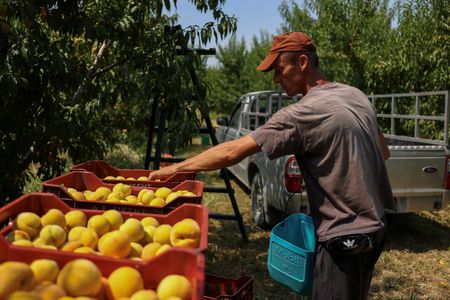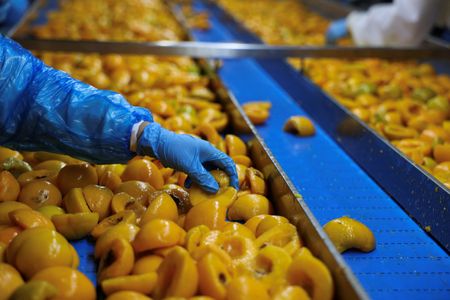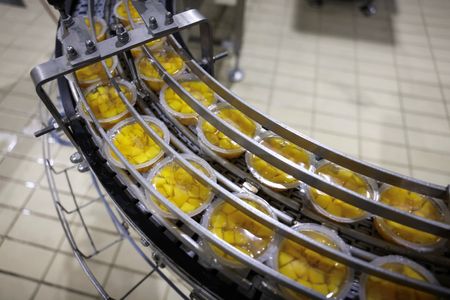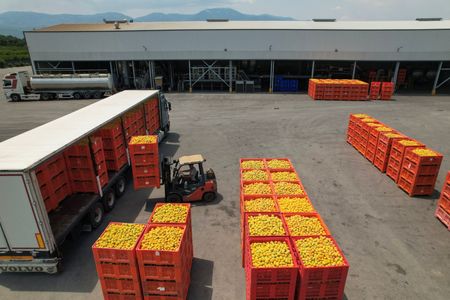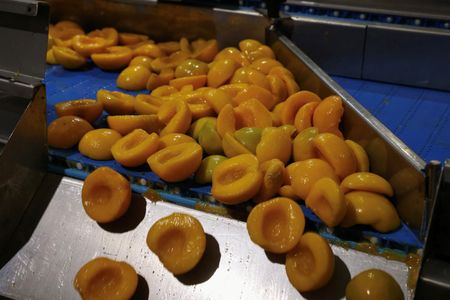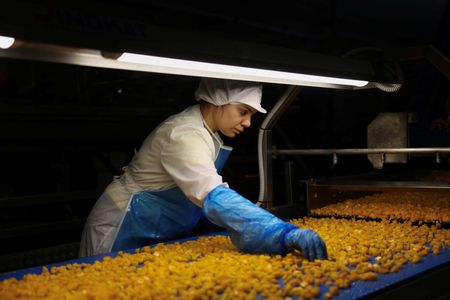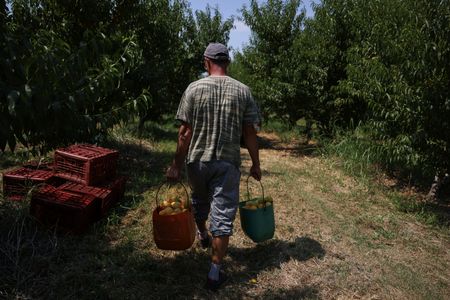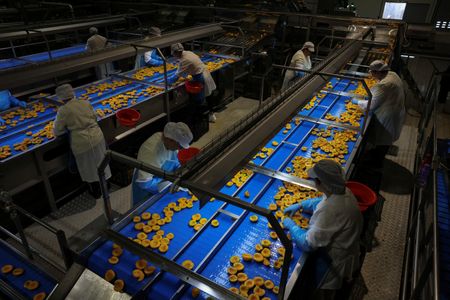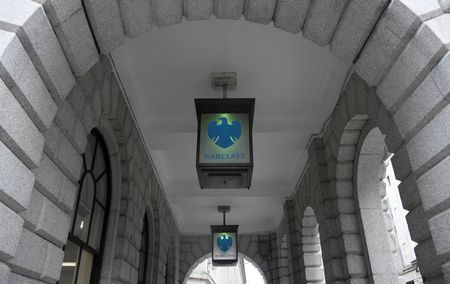By Lefteris Papadimas
NAOUSSA (Reuters) -July is harvest time in Greece’s northern peach orchards, where pickers mount wooden ladders and carefully place the fruit in crates ready for factories that peel, slice and can them, often for consumers in the United States.
But this year, the harvest is filled with uncertainty after U.S. President Donald Trump announced a 30% tariff on European products that has sent shivers through industries from wine to olive oil and autos.
Peach farmers and factory owners are worried that the tariffs will dent demand for their produce just as they are preparing to send their fresh harvest overseas, giving them little time to adapt or find alternative markets.
Greece is the world’s biggest exporter of tinned peaches, about one fifth of which goes to the United States, its second biggest market after Europe.
Peaches, like some other goods, are already subject to a U.S. import levy of 17%. The new tariffs could increase the total import duty to 47%.
“Now is even worse because it finds us at the peak, where the entire plant and all the production lines are working at full speed,” said Lazaros Ioannidis, co-owner of a peach and fruit processing plant near Naoussa that sends about 40% of its produce to big U.S. companies like Dole.
The fertile plain of Central Macedonia in Greece is one massive peach orchard. A sea of pink greets visitors in the spring, when the trees blossom.
This week, trucks offloaded crate after crate brimming with thousands of yellow peaches at Ioannidis’ plant, where they were loaded onto conveyor belts for processing.
Greece’s annual turnover from exports of tinned peach and other packaged peach products amounts to more than 600 million euros, with about 120 million euros coming from the U.S. market.
Exports to the United States represent about 4% of Greece’s total exports. Canned peach and peach derivatives, olives and olive oil are the three top exported agriculture products to the U.S., bringing home about half a billion euros annually.
More than 20,000 families, farmers and workers make their income from peach farms and peach factories in Central Macedonia, according to Kostas Apostolou, head of the Greek Canners Association.
“Our size might be small as a percentage for the country or the EU but for the region its a big source of income, vital for it’s survival.”
“For the past 6 months, since Trump took office, we have been in a period of an absolute turmoil,” says Apostolou.
He said that the only alternative is to diversify exports to Mercosur countries in South America or to Mexico and India and urged the EU to sign a trade agreement with those countries.
The EU was planning to approve a trade deal with Mercosur but has faced opposition from some countries.
Still, there are also optimists
“Trump is unpredictable. We hope that he will prove that and he will change this decision,” said farmer Vangelis Karaindros as he and his employees picked ripe peaches by hand.
(Reporting by Lefteris Papadimas; Editing by Edward McAllister, Alexandra Hudson)

